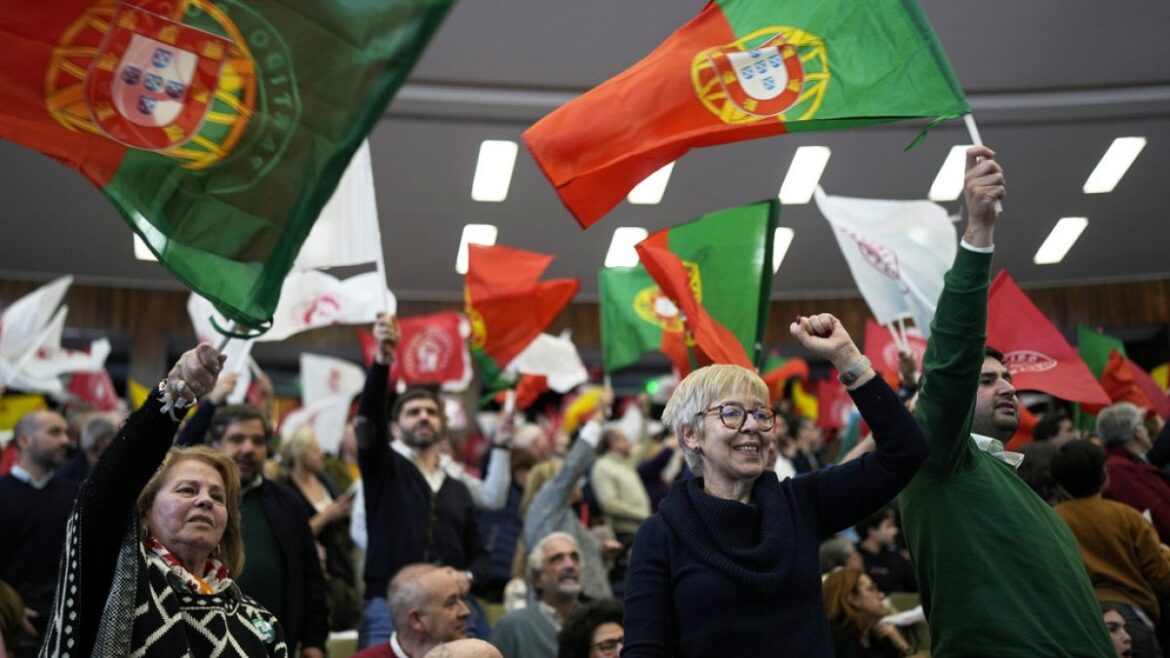An exit poll during Portugal’s legislative elections suggested the result was too close to call, with moderate parties poised to garner the largest number of votes, while a radical right-wing populist party could place in 3rd position.
The poll predicted 29% to 33% of the vote for the center-right Democratic Alliance, a group led by the Social Democratic Party. The center-left Socialist Party would collect 25 to 29% of the vote.
The populist Chega (Enough) party may have obtained between 14 and 17% in third place, according to the poll, compared to 7% in the last elections in 2022, part of a drift towards the political right seen in other countries of the European Union. Fifteen other parties got the rest.
The Catholic University of Portugal poll was published by public broadcaster RTP and has been largely accurate in previous elections.
A series of recent corruption scandals have alternated power for decades – the center-left Socialist Party and the center-right Social Democratic Party, which is running with two small allies in a coalition it calls the Democratic Alliance . These traditional parties should still win most of the votes.
High cost of living exasperates voters
Public frustration with politics as usual had already been evident before the anti-corruption protests. Low wages and the high cost of living – exacerbated last year by rising inflation and interest rates – combined with a housing crisis and failings in the public health system have contributed to this discontent.
This discontent has been stoked by Chega (Enough), a populist party that could potentially make the most of the current public mood.
Chega is widely expected to be the third most voted party as part of a political shift to the right that has already been seen elsewhere in Europe.
Chega could even play the role of kingmaker if a large party needs the support of smaller rivals to form a government.
Voting began at 8 a.m. (0800 GMT) and most results were expected in the hours after polls closed at 8 p.m. (2000 GMT).
Voting began at 8 a.m. (0800 GMT) and most results were expected in the hours after polls closed at 8 p.m. (2000 GMT).
Portuguese President urged people to vote
Portuguese President Marcelo Rebelo de Sousa, who is largely a figurehead but whose official consent is needed for a party to take power, urged people to vote because uncertain times in world affairs threatened the well-being of the country. During the last elections, in 2022, the participation rate was 51%.
In a televised address to the nation on Saturday evening, Mr Rebelo de Sousa said the unpredictable results of elections to the European Parliament and the United States later this year, as well as the war in Ukraine and conflicts in the Middle East, could lead to further economic difficulties.
He added that “It’s in difficult times like this that voting becomes more important.”
Sonia Ferreira, a 55-year-old financial manager voting in Lisbon, said the vote was “decisive” because the continent must stop the growth of hard-right parties.
“We are seeing very extremist movements across the European Union and we all need to be very careful” she said.



